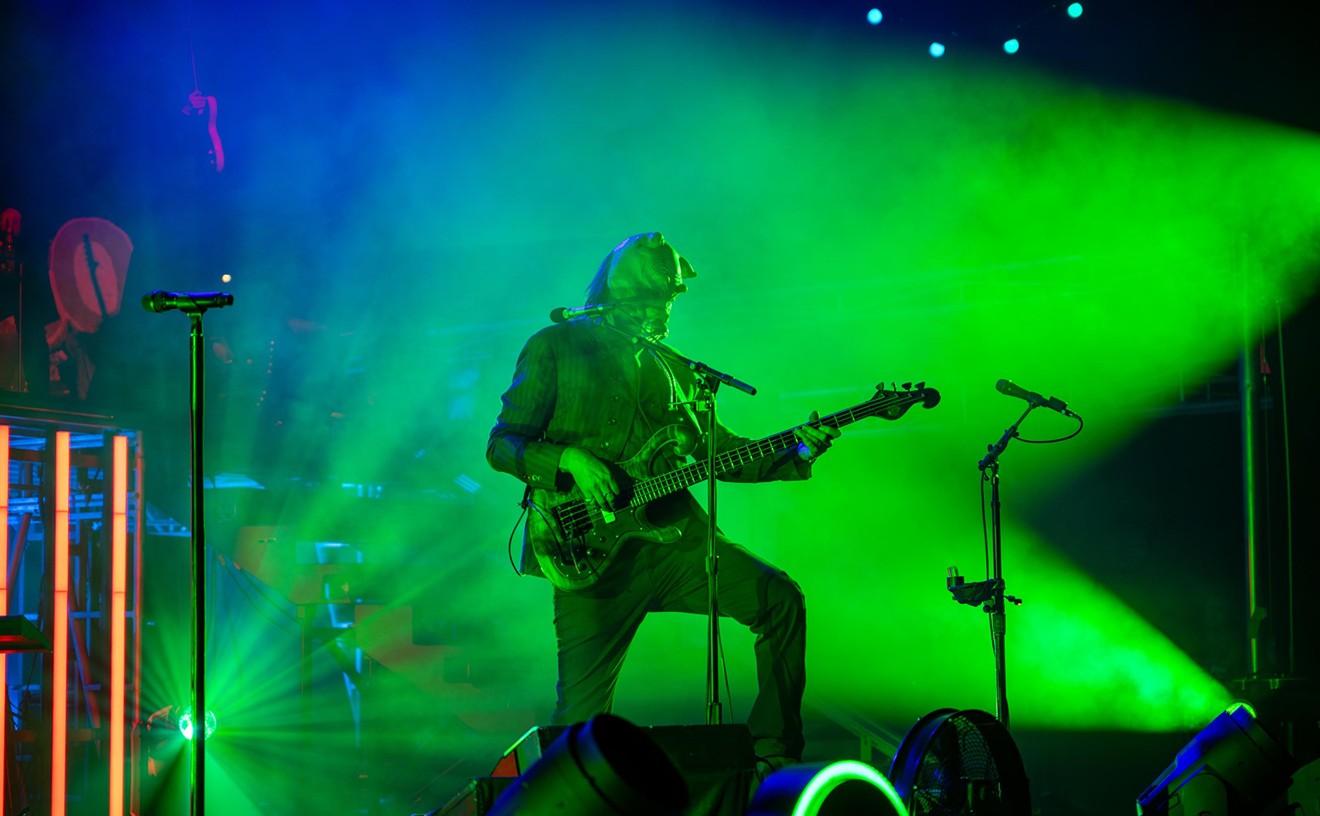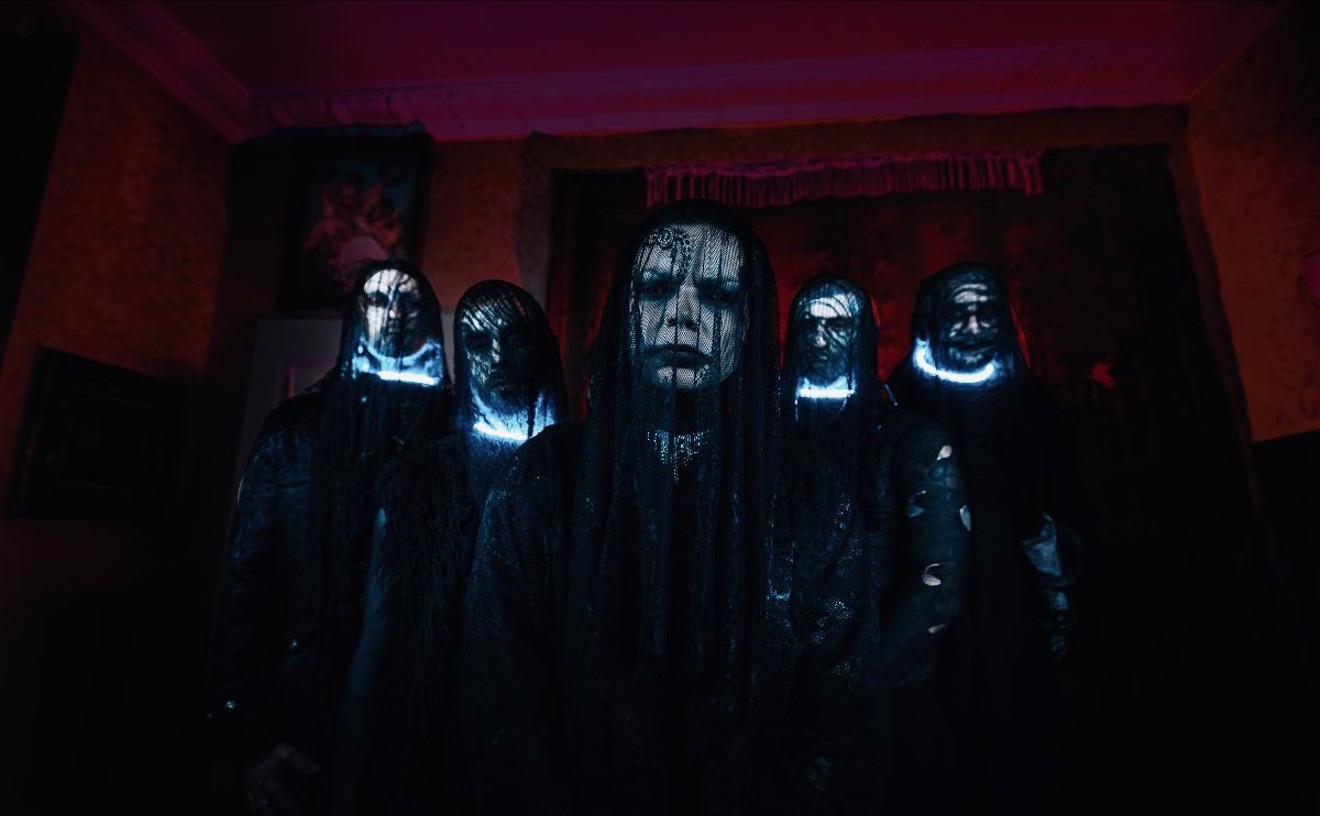"I got inside his head, and he definitely got inside mine," says Rowan, who is writing a book about his days with Monroe.
Born (on the Fourth of July, 1942) to a musical family in Wayland, Massachusetts, outside Boston, Rowan first hooked up with the mercurial Monroe when the bluegrass legend needed a guitarist for a tour of New England. Bill Keith, Monroe's banjo player at the time, recommended his friend Rowan for the job -- they had played together in the folk-music clubs around Harvard Square.
"So I hired on as his guitar player," Rowan says from his Sausalito, California, home. "And we played a bunch of dates in New England. And during that time, Bill offered me a [full-time] job. I mean, I think he was offering me a job. He said I should come to Nashville and that he could help me."
After the tour ended, Rowan headed south to Music City and gave Monroe a call. But Monroe had already hired someone else for the job. "He said it was going to take a little time," Rowan recalls. "He said, 'I've got a boy working for me now, and I'm going to have to let him go.'" He did just that, and soon Rowan was a full-fledged Blue Grass Boy, playing behind Monroe every Saturday night at the Grand Ole Opry. "I had never had anything happen to me in that way," Rowan says. "Music was the only thing that I felt confident about, so when I got the job with Monroe, I didn't really take it for granted -- I was excited beyond limit -- but I had no idea where to put this experience, except that it seemed like a natural thing."
Rowan ended up doing more than just performing with his idol: He also drove the tour bus, affectionately known as the "Blue Grass Breakdown," and he served as Monroe's road manager, booking gigs all over the country. It was, to say the least, an education.
"It got real interesting," Rowan says. "I was one of the few people that would ask Bill questions and get him to talk about stuff. And once you started talking to him, he was really open. But he was also someone who could maintain silence for weeks on end. I mean silence; there were some long, quiet bus rides!"
Once, when the Blue Grass Boys were on tour in England, Monroe heard folksinger Tom Paxton's "The Last Thing on My Mind" and decided he wanted to record the song. But fiddler Richard Greene, a young, classically trained violinist from Los Angeles who joined the band in 1966, didn't think the Father of Bluegrass should record such pop material. He expressed his doubts to Rowan, who in turn raised the matter with Monroe. "I wasn't that concerned about it," Rowan says, "but I was the messenger, and Bill took it like I had really crossed him." Indeed, he was furious. Notoriously headstrong, Monroe didn't take kindly to folks who questioned his decisions, musical or otherwise. Rowan tried to make amends with his boss, telling him that recording the song wasn't such a bad idea after all. But according Richard D. Smith's recent biography of Monroe, Can't You Hear Me Callin': The Life of Bill Monroe, Father of Bluegrass, Monroe told Rowan, "You have put me off it, Pete. You have ruined it for me. You have ruined it."
"He didn't speak to me for about three months," Rowan says, laughing. Not only that, but Monroe punished Rowan for his impudence by freezing him out of the studio. The result is that there are few recordings of Monroe and Rowan singing together, which is unfortunate, because when they harmonized, their voices reached heavenly heights. (The best example may be "Wayfaring Stranger;" it can be found on the Smithsonian Folkways album Bill Monroe and the Blue Grass Boys: Live Recordings, 1956-1959.) They even co-wrote a song: "The Walls of Time," a haunting ode to eternal love. They sang it together in concert, but Monroe didn't record the tune until after Rowan had left the band. (And even then, Rowan had to remind Monroe that he deserved a writing credit.)
Rowan and Monroe's relationship was complicated by the fact that the student sounded quite a bit like the teacher. "He thought I was trying to copy him," Rowan says. "In fact, he told me," and here Rowan switches to a perfect imitation of Monroe's clipped Kentucky accent, "'A lot of people have been listening to the Opry and writing letters, and they say they like you a lot, and that you're a great singer. And I believe they're right. But a lot of folks say that you sound a lot like me, and that's not good; that's not good.'"
When Rowan decided to bring his girlfriend on the road with him, Monroe -- despite being a notorious womanizer -- was incensed. "It was a big point of contention between us," says Rowan, who decided he'd had enough and soon gave notice. "People forget how hidebound Bill Monroe was," he says, "because most people discovered the nice side of Monroe from about 1975 until he died [in 1996]. The last twenty years of his life, he was just this warm, wonderful old man, but those who remember the Bill Monroe of the '50s and '60s remember a guy who was a real taskmaster. I mean, he had a flaring temper. So I kind of caught up with him as he was beginning to mellow, but he was still the Man."
Given that Rowan was, by his own admission, "young and cocky" in those days, and Monroe was, well, Monroe, friction between the two was probably inevitable. But Rowan never doubted Monroe's musical genius, and today he places him alongside such twentieth-century heavyweights as John Coltrane and Miles Davis. "Somewhere underneath it all, he had the iron will that enabled him to stay in the saddle of the bluegrass thing," Rowan says with admiration, "and nobody I know has ever worked so hard to maintain one style for that long."
Rowan, by contrast, has forged a career by zigging and zagging through a variety of musical styles, including bluegrass, rock and roll, Tex-Mex, old-time country, Celtic, folk and reggae. "The thread in my music is definitely not a five-string banjo," he says. "It's me; it's my voice, and it's a sense of freedom."
After leaving Monroe, Rowan and his friend David Grisman, the mandolinist, formed the eclectic folk-rock band Earth Opera. They recorded two albums for Elektra Records, and they frequently opened shows for their label mates the Doors. Next, Rowan hooked up with his old friend Richard Greene, who had started a jazz-rock fusion group named Seatrain.
In the early '70s, however, country and bluegrass were suddenly hip again, thanks to albums such as Bob Dylan's Nashville Skyline, the Byrds' Sweetheart of the Rodeo and the Nitty Gritty Dirt Band's Will the Circle Be Unbroken. Rowan, his curly hair now down to his shoulders, migrated to the Bay Area, where Grisman had already landed. They began hanging out with the Grateful Dead's Jerry Garcia, who was playing his banjo again. (Garcia once dreamed of being a Blue Grass Boy.) After months of casual picking in the living room of Garcia's Stinson Beach home, they decided to form a real bluegrass band, eventually hiring fiddler Vassar Clements (another Monroe alumnus) and bassist John Kahn. They called themselves Old & In the Way, and they played a number of gigs in and around San Francisco in 1973, performing a mixture of bluegrass standards and now-classic Rowan originals like "Panama Red," "Midnight Moonlight" and "Land of the Navajo."
When its self-titled album appeared in 1975, on the Dead's Round Records, the group had long since disbanded. But thanks to Garcia's participation, the record sold well, and "hippie-grass" bands popped up like bean sprouts all across the country.
After embarking on a solo career in the late '70s, Rowan has recorded some wonderfully diverse albums, many of them for the Sugar Hill label. Dust Bowl Children, from 1990, is a Woody Guthrie-style song cycle about the Great Depression. For 1996's Yonder, Rowan teamed up with ace dobro player Jerry Douglas to record old-time country music (and a few retro-sounding Rowan originals). In 1994, he traveled to Prague to record New Freedom Bell with the Czech newgrass band Druha Trava. His next effort -- which will be available only by mail order through Lyons-based Planet Bluegrass (bluegrass.com), producer of the Telluride and Rockygrass bluegrass festivals -- is a reggae-meets-bluegrass hybrid titled Reggaebilly. Rowan, who often plays the island music in concert, recorded the disc in Jamaica with a full band, then overdubbed parts by Douglas and fiddler Stuart Duncan. (At this week's appearance at the Gothic, he'll be performing "cowboy roots music" with Western singer Don Edwards.) Lapsing into hippie-speak, he admits that it "could be one of those ideas that's there, but nobody would think of doing it because -- well, duh, everybody knows why they wouldn't do it. But I haven't found out why you don't do it yet, so I'm doing it."
Despite Rowan's propensity for far-flung musical excursions, he has never stopped playing bluegrass, and he probably never will. Monroe once told him, "You can try to get away from bluegrass, Pete, but it will always call you back." Indeed, two of his finest albums are full-blown tributes to his former mentor: The First Whippoorwill (1990) and Bluegrass Boy (1996). Although he denies it, Rowan -- a tall man who often performs in a fancy stage suit and a white cowboy hat -- has even come to look like a long-haired version of Monroe, who stood ramrod straight and dressed like an undertaker. Certainly when he sings, you can't help but hear traces of Monroe's high, lonesome voice.
"There's sort of an eternal Bill Monroe-ness that's alive in me, in the musical vibes," Rowan says. "I feel that it's always there."










